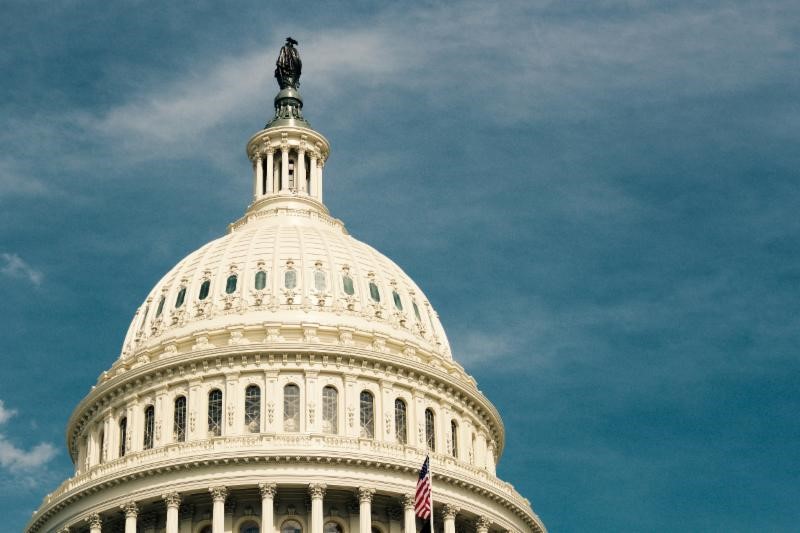eHI Policy Update | Summer 2018
eHealth Initiative staff and members are regularly meeting with key legislators and congressional staff to educate policymakers on the issues our members are most passionate about.
We have been tackling the opioid epidemic and held a series of hill meetings, led a roundtable discussion, and completed an opioid issue brief. Legislators are asking about our members' use of analytics and data to target at-risk populations and track the opioid crisis. Follow the link to share your organizational initiatives on opioids.
What's happening:
- On June 22, 2018, HR 6, the SUPPORT Patients and Communities Act of 2018 passed the house with 396 ‘yeas’ to 14 ‘nays’. The largely bipartisan bill is co-sponsored by the chairman of the Energy and Commerce Committee, Representative Walden, and a ranking member of the same committee, Representative Pallone. We are waiting to see if the bill passes the Senate. For more information on HR 6 and other opioid related legislation, see the links below.
- In the House Energy and Commerce Committee’s hearing, “Improving the Coordination and Quality of Substance Use Disorder Treatment,” Dr. H. Westley Clark, a Dean’s Executive Professor at Santa Clara University, compared the Opioid Prevention and Patient Safety Act to the Facebook scandal involving Cambridge Analytics. Representative Mullin, the bill’s sponsor, was quick to fight back against that allegation.
- At the Senate Finance’s “Rural Health Care in America: Challenges and Opportunities” hearing, Ms. Karen Murphy, PhD, RN, the Executive Vice President, Chief Innovation Officer, and Founding Director of the Glenn Steele Institute of Health Innovation, along with other witnesses, encouraged Congress to help rural hospitals use technological innovation to move away from traditional care delivery and into the value-based payment models.
- The FDA has recently published a document that provides guidance to researchers on the use of EHRs in FDA-regulated clinical trials.
- Ed Simcox, Deputy Chief Technical Officer of the Department of Health and Human Services, will be taking over duties for Bruce Greenstein, the current Chief Technical Officer, who will be heading back into the private sector with the LHC Group.
- Senators will not be getting air miles in August! Senate Majority Leader Mitch McConnell cancelled three weeks of the August Recess.
- The Department of Veterans Affairs may have decided to scrap planned EPIC software instead of paying the multi-million dollar contract for the Medical Appointment Scheduling system.
Opioid legislation to watch...
- S.2456 Comprehensive Addiction and Recovery Act 2.0

- S.581 Jessie’s Law
- S.2680 OCRA
- S.2460 Every Prescription Conveyed Securely Act
- S. 2901 Expanding Telehealth Response to Ensure Addiction treatment (eTREAT) Act
- S. 2912 Opioid Addiction Treatment Programs Enhancement Act
- HR. 3528 Every Prescription Conveyed Securely Act
- HR. 6 SUPPORT Patients and Communities Act of 2018
- HR. 5311 House Comprehensive Addiction and Recovery Act 2.0
- HR. 3545 Overdose Prevention and Patient Safety Act
Who should we add to our policy meeting list? Email Emma@ehidc.org
The Return on Investment of Patient-Generated Health Data & Remote Patient Monitoring
Healthcare stakeholders are seeking new strategies to improve access to care, address disease management, and spur treatment innovation as a growing number of patients require higher quality, more complex care at lower costs. At a time when the number of people with chronic conditions continues to rise at a staggering rate, providers must manage more patients with the same number of resources, or less, and deploy technology that improves efficiency and effectiveness.
The healthcare industry is deeply vested in identifying new ways to improve the overall health and satisfaction of patients. As a result, provider organizations are adopting remote patient monitoring (RPM) services – inclusive of data from home health devices – as a new standard of care.
This report from eHealth Initiative (eHI) in partnership with Validic analyzes the driving market trends and subsequent barriers for the adoption of patient-generated health data (PGHD) as part of remote care programs. The report delves deep into the financial, operational, and clinical returns on investing in such initiatives – offering perspectives from providers, technologists, regulators, and even a patient enrolled in such a program.
Patient Experience: Empathy by Design
6.12.18 presentation from June eHI Workflow for Provider and Patient Experience Workgroup meeting by Lori Kondas, Executive Director, Patient Experience, Cleveland Clinic
Issue Brief: Sharing Behavioral Health Information Amid the Opiod Crisis
 As the old model of patient care silos—where behavioral health providers treat patients separately from the rest of the healthcare system—breaks down, participants from across healthcare are attempting to access patient-specific behavioral health data to create integrated care models. Primary care providers are taking on a greater role in treating those with addictions, as are new players (teletherapy companies), and traditional entities (providers, health plans, pharmaceutical companies). The opioid epidemic has increased the need for behavioral health services and for healthcare stakeholders to seek a more active role in managing behavioral health.
As the old model of patient care silos—where behavioral health providers treat patients separately from the rest of the healthcare system—breaks down, participants from across healthcare are attempting to access patient-specific behavioral health data to create integrated care models. Primary care providers are taking on a greater role in treating those with addictions, as are new players (teletherapy companies), and traditional entities (providers, health plans, pharmaceutical companies). The opioid epidemic has increased the need for behavioral health services and for healthcare stakeholders to seek a more active role in managing behavioral health.
On May 1, eHealth Initiative Foundation and Manatt, Phelps & Phillips hosted an executive advisory board on the role of health information technology in protecting and sharing behavioral health data amid the opioid crisis. The roundtable meeting, Sharing Behavioral Health Information in Light of the Opioid Epidemic, explored the role of privacy and security in the context of the crisis. Much of the discussion focused on the impact of policies and regulations that hinder the sharing of sensitive patient data and affects health outcomes. Experts and industry leaders from Walgreens, Surescripts, CRISP, OhioHealth, Senator Shelley Moore Capito’s office, and the Substance Abuse and Mental Health Services Administration (SAMHSA) provided information on the policies and technologies that affect the use of behavioral health information in patient care and discussed ways to address challenges.
This brief addresses the role of electronic prescribing of controlled substances (EPCS), regulatory and legislative obstacles, including 42 Code of Federal Regulations Part 2 (42 CFR Part 2), the Health Insurance Portability and Accountability Act (HIPAA), and the Prescription Drug Monitoring Program (PDMP), and aims to provide potential solutions for tackling the opioid crisis.
The State of Care Coordination: 6 Illuminating Strategies You Should Know

A strong care coordination program is instrumental in engaging patients in their health outside the care setting and giving them the confidence to make important health decisions. Download this eBook to learn 6 strategies to jump-start your care coordination program to boost revenue, cut costs and enhance the quality of patient care.
Workgroup: Workflow for Provider and Patient Engagement
This workgroup explores the patient experience in care delivery and how it is supported. Participants seek best practices in transforming their current workflow into new environments and understanding the various nuances in points of care.
Workgroup: Workflow for Provider and Patient Engagement
This workgroup explores the patient experience in care delivery and how it is supported. Participants seek best practices in transforming their current workflow into new environments and understanding the various nuances in points of care.
Workgroup: Workflow for Provider and Patient Engagement
This meeting is for eHI members
Workgroup: Value & Reimbursement
This meeting is for eHI members
Workgroup: Workflow for Provider and Patient Engagement
This meeting is for eHI members

